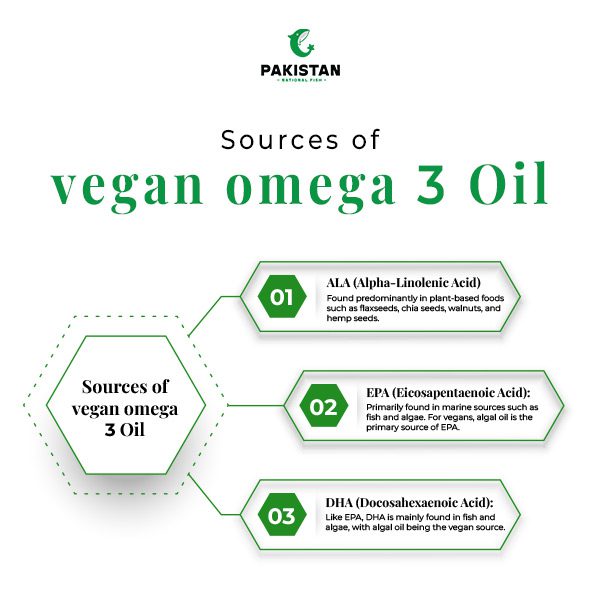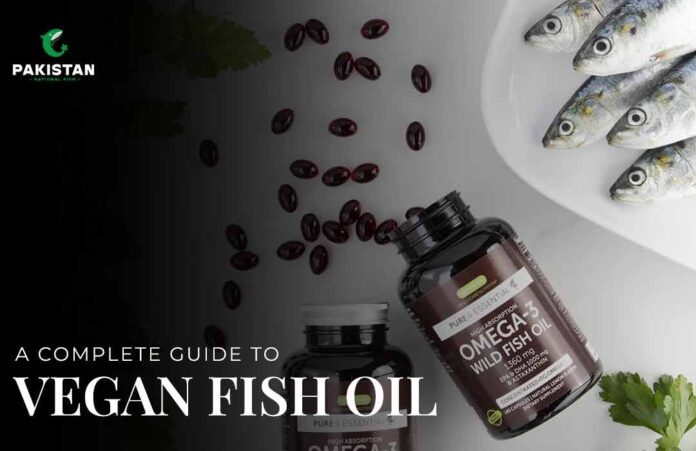Since people have decided to reduce the use of products from animals as they opt for plant-sourced products, there is a burden on supplements such as fish oil. Originally obtained from fish, fish oil supplements contain vitamins and minerals especially omega-3 fatty acids which are vital in body functions particularly the heart and the brain.
The search for a non-animal-based source of these macronutrients for those on a vegan or vegetarian diet has given birth to vegan fish oil.
What is Vegan Fish Oil?
Vegan fish oil is therefore a combination of vegan omega 3 supplements derived from sources other than fish oils.
It is a product that aims to offer the same benefits of omega-3 fatty acids that are offered by fish oil products, but it has no fish components. Omega-3s can be sourced from marine algae and these are EPA and DHA, both of which are part of fish oil nutrients.
Benefits of Vegan Fish Oil
1. Heart Health
Vegan fish oil provides EPA and DHA that contribute to the health of the heart substantially. These fatty acids help to prevent inflammation in the body and since inflammation is one of the causes for heart diseases, it reduces it. They also have the effect of reducing the blood pressure which in turn takes the strain off the heart and thus minimizing the recipient’s probability of suffering a heart attack or stroke.
Further, omega-3s assist in the management of cholesterol by raising levels of high-density lipoprotein cholesterol commonly referred to as ‘‘good’’ cholesterol while at the same time reducing levels of triglycerides – fats in the blood that can cause blockage of arteries.
2. Brain Health
DHA is an essential fatty acid that forms a rather large part of the brain material known as grey matter. This substance is crucial in the creation of new neurons and the process of connection between the neurons.
Scientists recommended an adequate intake of DHA since it helps in the functioning of the brain such as in memorization, learning, and decision-making skills. Such as protecting against cognitive decline as we age, and against conditions such as Alzheimer’s disease and other forms of dementia.
3. Eye Health
Besides the brain, DHA is required by the eyes especially the retina area where it is most concentrated. DHA is useful for the health of the eyes and for the prevention of age-related macular degeneration which is a typical eye disease affecting many elderly people.
Regular intake of DHA can also help in having clear vision and avoiding eye complications that may lead to other health risks in the long run.
4. Eye Health
Main Sources of Vegan Omega 3 Oil

1. Vegan Sources for ALA
ALA is the most prevalent Omega-3 fatty acid derived from plants. Although the conversion process isn’t always effective, your body can convert some ALA into EPA and DHA. Therefore, eat more ALA-rich foods to maximize your intake. These are some items that you ought to eat regularly.
- Flaxseeds: With 6.48 grams of ALA per ounce, these little nutritional powerhouses are your best bet for ALA. Savour them baked into muffins, bread, cereal, or ground, and add to your morning smoothie, salads, or yoghurt.
- Chia seeds: Known for their immense versatility, chia seeds are another ALA superstar. An ounce of chia seeds contains slightly more than 5 grams of ALA or about 2 tablespoons. Add them to puddings or smoothies, or use them as a plant-based alternative to eggs.
- Vegetable oils high in ALA: Several vegetable oils offer a sufficient amount of ALA. Canola oil provides 1.28 grams, soybean oil provides.92 grams and flaxseed oil provides 7.26 grams per tablespoon. Use these oils in baking or for salad dressings.
- Walnuts: Packed with ALA and other healthy elements, walnuts have 2.58 grams per ounce. They offer a pleasing crunch to salads and combine well with cereals and trail mixes.
2. Vegan Sources of EPA and DHA
- Algae oil: Because fish consume algae as part of their diet, they are high in Omega-3 fatty acids. Algae oil derived from microalgae such as Schizochytrium or Nannochloropsis is considered to be one of the most excellent vegan sources of DHA and EPA. It is also regarded as an environmentally friendly type of omega-3 fatty acids.
- Seaweed: This adaptable seaweed has several food uses, such as in nori or wakame. It tastes good on sushi, in salads, in soups, and even as snacks. Just be careful about the type you select because some seaweeds have more iodine than others.
- Seaweed Supplements: DHA and EPA are found in several edible seaweeds, such as marine phytoplankton. Seek for dietary supplements derived from these marine resources.
- DHA-fortified food: Some businesses now use DHA obtained from microalgae to strengthen vegan foods such as plant milk, eggs, yoghurt, and cereal for breakfast. Think about obtaining your Omega-3s from enriched commonplace products from reputable companies or farmers.
Why Choose Vegan Fish Oil?
Choosing vegan fish oil has several advantages:
- Vegan fish oil is a popular choice for vegetarians who cannot afford animal-derived products due to its lack of animal products
- Liberalization of fishing and marine species exploitation are critical environmental issues. Vegan fish oil reduces demand, saving marine life.
- Fish oil supplements may contain toxins like mercury, but algae-derived omega-3 is considered better quality due to its lack of these contaminants.


